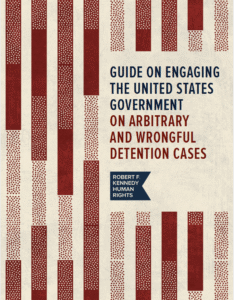July 17 was International Justice Day, a date that should remind us of the continuing struggle from victims of human rights violations and advocates around the world. One of these important ongoing struggles is accountability for the atrocities committed against the Rohingya in Myanmar. Five months following the coup, the case at the International Court of Justice (ICJ) and the open investigation at the International Criminal Court (ICC) are as important as ever, particularly as recent anti-Muslim propaganda and violence, as well as statements from the Tatmadaw denying the recognition of the Rohingya as an ethnic minority renew concerns over the safety of the Rohingya in Myanmar and paint a bleak prospect for any potential return of Rohingya refugees. While the implications of the recent February 2021 coup on these efforts continue to develop, we urge continued action and attention on long-awaited justice for the Rohingya.
ICJ Case
In 2019, the Gambia initiated proceedings against Myanmar before the ICJ on alleged violations of the Genocide Convention through acts committed against the Rohingya. The case focuses on actions taken by Myanmar’s security forces in October 2016 and then again in August 2017 for the so-called “clearance operations” they engaged in against the Rohingya community. In early 2020, the Court ordered Myanmar to take effective measures to protect the Rohingya from genocide and required the country to submit reports on a regular basis until a decision is renderd by the Court. Since then, Canada and the Netherlands have joined the Gambia’s case, pushing for efforts to focus on sexual and gender-based crimes perpetrated against the Rohingya.
While this represents a significant step in furthering international justice, Myanmar has been far from compliant with the Court’s orders, even prior to the coup in which Tatmadaw leaders of the Rohingya genocide declared themselves the ruling regime of the country. While the Office of the President of Myanmar issued three directives calling for government ministers to ensure that they do not commit genocide, preserve evidence of atrocities, and prevent hate speech, little meaningful action, if any, was taken to ensure that such orders were followed. In fact, only months following the Court’s order, the government continued to impose internet blackouts in Rakhine State, which put the Rohingya and other ethnic minorities at heightened risk and prevented the international community from collecting information. Further, two weeks prior to the coup, the country filed preliminary objections to the Court, which is expected to cause significant delays. Since the coup, the military junta has organized a legal defense team for the ICJ case.
While the military continues to pose a threat to the Rohingya following the coup, the National Unity Government (NUG), as well as many of the Civil Disobedience Movement (CDM) protestors, have expressed their support for the Rohingya and their right to citizenship. With hopes that the NUG will be recognized by the international community as the rightful, civilian-led ruling power of Myanmar, this is a welcome step. Additionally, the NUG stated that, as the lawful government, they are taking steps to cooperate with the ICJ, including maintaining representation before the Court and following the Court’s timeline. At the same time, the Rohingya community and others have called for the NUG to go further in protecting the Rohingya and other minorities.
Additional Efforts
In addition to the case before the ICJ, the International Criminal Court (ICC) authorized an investigation into atrocities committed against the Rohingya in Bangladesh and a universal jurisdiction case was brought in Argentina seeking the prosecution of Myanmar’s senior officials. While the ICC does not have jurisdiction over Myanmar because it is not party to the Rome Statute, the NUG has suggested that it would grant the ICC jurisdiction to crimes committed against the Rohingya in Myanmar when they come into power. Complementary efforts to these prosecutions, including evidence-gathering and investigative mechanisms such as the Independent Investigative Mechanism for Myanmar, have proven essential in establishing a record of the atrocities, which, in turn, has enabled advocates to bring such cases before international and domestic tribunals around the world.
As the situation in Myanmar continues to deteriorate with a violent crackdown on those protesting the military coup and a worsening COVID-19 situation, efforts at achieving justice and protection for the Rohingya has become even more crucial to securing their safety and survival. While the international community must continue to take action against the military junta to restore a civilian government, this should not detract from efforts to pursue and achieve international justice and accountability to prevent such atrocities from happening again.




